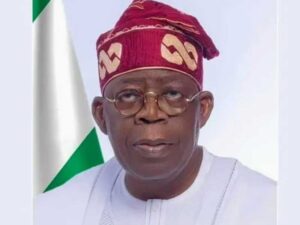Nigeria is actively pursuing a $1.5 billion aid package from the World Bank to address a severe dollar shortage that is contributing to the depreciation of the naira.
Finance Minister Wale Edun revealed to Bloomberg on Wednesday that the country is hopeful of securing $1 billion to $1.5 billion from the World Bank for budgetary support. He emphasized that, with ongoing economic reforms, Nigeria deserves international support. The minister also mentioned the possibility of issuing a Eurobond in late 2024 as a strategic move to navigate economic challenges.
Eurobonds, denominated in foreign currencies, serve as a financial tool for Nigeria to manage its fiscal landscape. The minister expressed confidence in receiving the necessary support, citing the country’s commitment to reforms.
Nigeria has a history of issuing Eurobonds to raise debt for infrastructure and economic development. In 2022, the country entered international debt markets with a $1.25 billion Eurobond issuance. Subsequently, in the following year, a $500 million Eurobond issued in 2013 was redeemed as part of a dual-tranche of $1 billion.

During a press conference in October 2023, the minister revealed that the anticipated $1.5 billion World Bank loan would come with a zero-interest rate, providing a significant boost to Nigeria’s development financing. The nation currently grapples with a substantial debt of approximately N87 trillion, deemed manageable by the International Monetary Fund, although concerns persist about high-interest payments.
The minister assured that the World Bank loan would be utilized for development purposes, emphasizing its imminent disbursement. He highlighted the advantageous terms, stating, “effectively, the interest rate will be zero.”
Despite Nigeria’s forex challenges, including nearly $7 billion in matured forex forwards, the Central Bank has taken steps to enhance liquidity and stability. A recent disbursement of $2 billion was made to settle outstanding foreign exchange forwards, aiming to boost confidence in the forex market.
The economic landscape presents challenges, including a budget deficit driven by factors such as fuel subsidy costs, debt servicing, and restrained public spending. President Bola Tinubu outlined a multifaceted financing approach for the 2024 fiscal year, addressing the deficit through new borrowings, privatisation proceeds, and multilateral and bilateral loans.
Persistent dollar shortages and increased demand have led to pressure on the naira, resulting in its devaluation. The official exchange rate and parallel market rate gap has widened, with the naira reaching a record low of N1,320 per dollar on the parallel market.
In the face of these economic challenges, Nigeria remains committed to implementing reforms, seeking international support, and employing strategic financial measures to navigate the complex fiscal terrain.